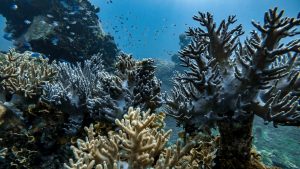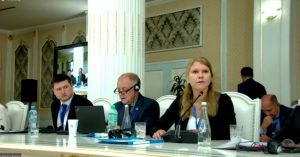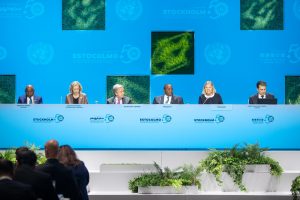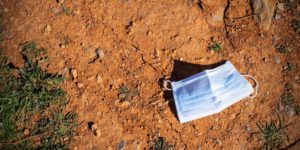- SIWI – Leading expert in water governance
- /
- Latest
- /
- Ingenuity & silver linings in the time of Covid (part 2)
Ingenuity & silver linings in the time of Covid (part 2)
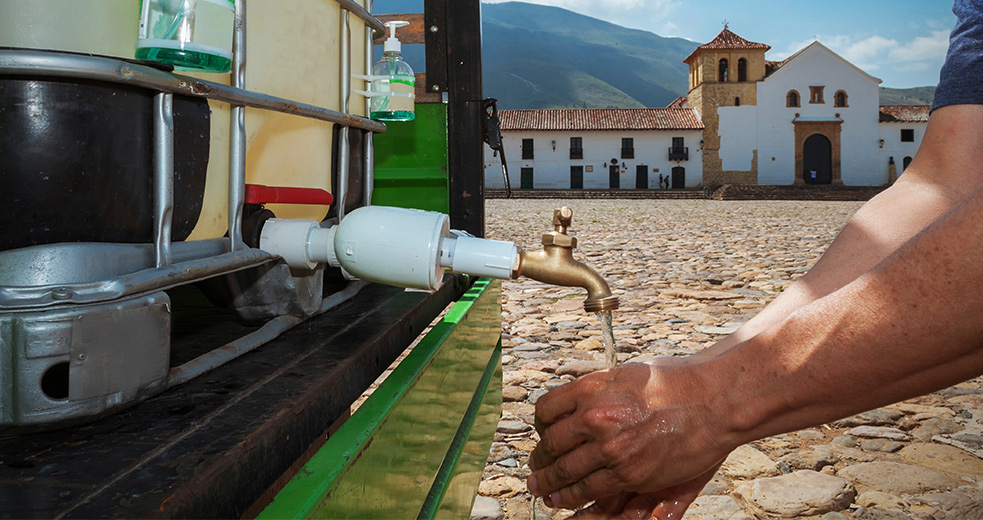
This is the second in a two-part feature focusing on the resourcefulness of SIWI staff, in the face of a series of challenges thrown up by the Covid-19 pandemic. The innovative solutions developed have been so effective, that they have been even more impactful than the original scopes of work which they replaced, planned before the pandemic.
We cross continents now, as we leave east Africa from part one and pick up this next account in Latin America, where Virginia Mariezcurrena (Program Manager for WASH in Latin America and the Caribbean) fills us in about a wholly different set of headaches her team faced.
In early 2020, SIWI’s WASH team for LAC was imminently about to press go on a collaboration program with UNICEF’s Regional Office for Latin America and the Caribbean. Having been in the planning stage for nearly a year, the ambitious endeavor was to run a dozen intensive, three-day WASHBAT workshops (WASH Bottleneck Analysis Tool), in eleven Latin American countries. Up to 80 attendees were expected at each, with representatives from governments, regulators, service providers and end-users invited. The workshops were expected to kickstart a huge amount of additional work for the program, with potentially 48 more field visits over the next couple of years.

However, as the pandemic rapidly spread throughout the world, travel restrictions followed shortly after and in late March, the entire schedule of workshops had to be abandoned. The disheartened SIWI team were left wondering how they would be able to fulfil the necessary requirements for the collaborative program.
Virginia, who had overseen the development of the workshop project since its inception, recalls how one Friday afternoon in March, as the team were busy brainstorming, they received an auspicious invitation. “A WASH specialist from UNICEF asked us [SIWI’s WASH team for LAC] for a meeting. They needed our help to assess the WASH measures being taken in the program’s eleven member countries in response to the pandemic. They needed an accurate appraisal with a fast turn-around, as UNICEF wanted to feed the results directly into governmental response plans.”
Virginia continues, “We got to work straight after the meeting; some of us started developing an online matrix tool, whilst others researched and collated information to input into it.”
As their first matrix took shape during the following weeks, its huge potential and value was evident immediately, and it was published in a UNICEF-SIWI technical note “The Water, Sanitation and Hygiene Sector and its Response to COVID-19: Initiatives in Latin America and the Caribbean”. The note highlighted the most effective solutions for hygiene and sanitation to best cope with the pandemic, whilst exposing those which had little or no impact. Even better, the matrix and subsequent note could be updated in real-time, to give an exact picture of the situation on the ground at any given moment. Eleven country-specific technical notes were initially developed, but encouraged by the positive response, the team created thirteen more for other Latin American nations, before producing a total of 84 for countries worldwide.
Developing the notes was vastly different from the familiar running of workshops, which the team envisaged they would be doing in the spring of 2020. But instead, they had created an indispensable tool at just the right time; helping struggling agencies to cope with WASH demands during an unexpected health emergency.
Indeed, several Latin American governments used the notes as the basis for their emergency pandemic WASH response plans. Ecuador used theirs as a foundation for a survey to identify the needs of hundreds of service providers across the country, whereas Bolivia further evolved theirs into a hotspot mapping tool, highlighting vulnerable areas and the specific interventions they needed. In Paraguay, the note was integrated into their National Response Plan which led to a significantly more coordinated response and in Guyana, the note served to stop the disconnection of water services by the national service provider. Suriname, Mexico, Colombia, Ecuador and Paraguay expanded their notes even more and used them for the safe reopening of their schools. UNICEF, meanwhile, used them to develop humanitarian WASH response plans for ten Latin American countries.
Beyond the pandemic, Peru has considered using its technical note as an input into the country’s WASH legislation, whilst in Colombia it is being used as a decision-making tool at the Water Vice Ministry level.
Having WASH workshops cancelled during the grip of an infectious disease pandemic initially seemed disastrous. However, the SIWI WASH team recognize how their redirection of efforts, from workshops to matrix mapping and technical notes, couldn’t have come at a more opportune moment. Getting accessible information into the hands of decision makers at this critical time has not only helped them manage essential WASH services during the pandemic, but it’s given them a comprehensive understanding of the fundamentals of WASH services. As might now be happening in a few of the countries, it is hoped that this elevation of WASH awareness will remain a priority for policy making in the future, after the immediate crisis of the pandemic fades.


